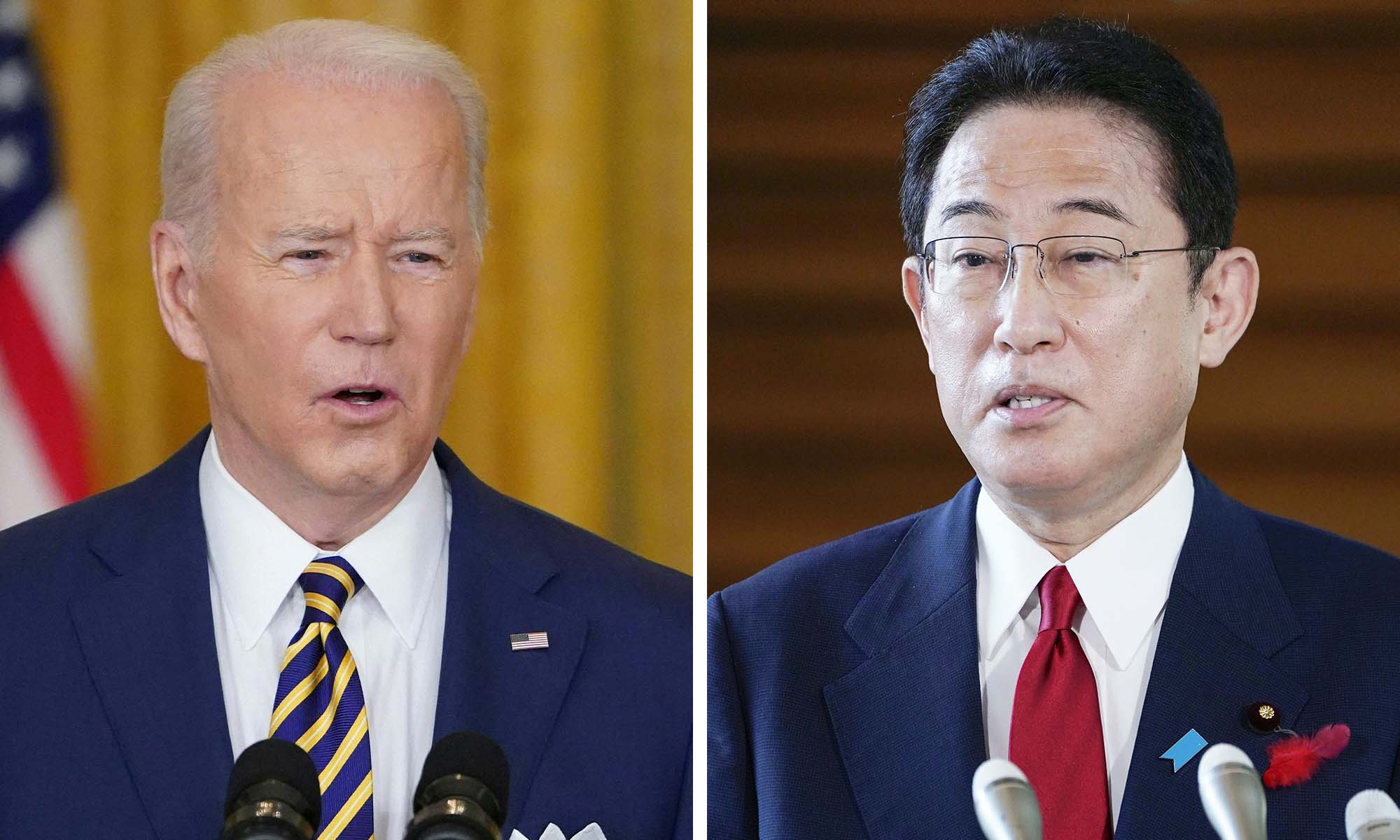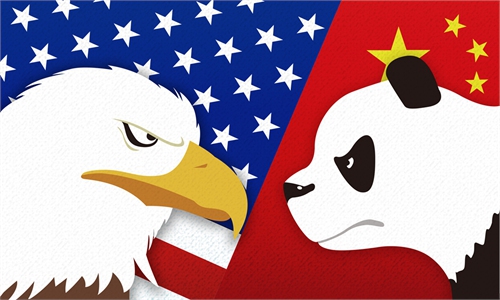
Photo:VCG
Amid regional tensions and domestic COVID-19 spikes, US President Joe Biden held a virtual meeting with Japanese Prime Minister Fumio Kishida on Friday, during which they agreed to boost cooperation on pressing economic and security issues, including China's growing power, North Korea's alleged missile launches and Russia's aims in Ukraine.
It was the first virtual summit between Biden and Kishida since the Japanese Prime Minister took office in October 2021. Experts believed that seeking "common ground," or more specifically testing Tokyo's loyalty to Washington under the new Japanese leader, weighs much more for the US than anything else.
The meeting comes after US national security adviser Jake Sullivan and his Japanese counterpart Akiba Takeo's meeting on Thursday, in which Sullivan discussed the important of the alliance, as well as approaches to most of the issues on Friday's summit.
Citing a senior administration official, Bloomberg reported that Biden wants to talk about "a strong, united response that would result from further Russian aggression toward Ukraine," China's "threats," as well as the recent "weapon tests" by North Korea.
Citing Japanese officials, Japanese media Kyodo said the pair would also initiate a new "2 plus 2" dialogue that will cover economic and diplomatic issues. On January 7, the US and Japan held a virtual 2+2 meeting between foreign and defense ministers, with a new five-year agreement on sharing the cost of the US military presence in Japan, aiming to "deepen defense cooperation."
Experts told the Global Times that newly elected Japanese prime ministers usually pick the US as the first stop for a visit after they take office. Due to the current COVID-19 spike, the online meeting has become the only choice, which is also in line with Japan's diplomatic tradition.
"The meeting is a kind of 'pilgrimage,' as Japan sees the US as its protector," said Liu Weidong, a research fellow at the Institute of American Studies at the Chinese Academy of Social Sciences. "The new Japanese Prime Minister needs to show a sense of loyalty, or a sense of urgency to preserve bilateral ties."
Liu told the Global Times that despite many issues covered, the meeting is unlikely to yield concrete results. "It's more about making statements and expressing concerns about the appeal from the other."
Some analysts said that by stressing the common "opponents," Biden has built rapport with Japan's former prime minister, Yoshihide Suga, and he hopes the same with Japan's new leader.
The current focus of the US and Japan is different. The US pays the most attention to Ukraine, while Japan cares more about regional affairs, such as the Korean Peninsula issues, the Diaoyu Islands, and the Taiwan question, Liu noted.
Some experts said the tone of the meeting would continue to be aimed at China and Russia, showing their intention to strengthen Japan-US military cooperation and expand intervention in Indo-Pacific affairs. By hyping the "China, Russia threat theory," the US and Japan have further confirmed their mid- and long-term strategic goal: containing their two opponents.
Da Zhigang, director and research fellow of Institute of Northeast Asian Studies at the Heilongjiang Provincial Academy of Social Sciences, told the Global Times that despite Japan's inability to help the US over the standoff with Russia on the Ukrainian crisis, re-emphasizing the Indo-Pacific region is a bid to show an ally's support for the US on global affairs.
Da added that having closer ties with the US over Indo-Pacific affairs is also Japan's response to Russia, which took a tough stance on their disputed islands.
Kishida has only been in office for 100 days while Biden found himself with his lowest approval rating when marking his first year in the White House. And they both face elections in 2022-- Japan's upper house of parliament in July and US midterm elections in November.
Experts said while it's understandable to use diplomacy to boost flagging domestic credentials, some differences and conflicts remain between the US and Japan, which would come up during the Biden-Kishida teleconference.
Resentment toward US troops has grown among the Japanese, especially Okinawa residents who are suffering from an Omicron variant spike, which was partly caused by the presence of US troops, who have almost no travel barriers in and out of military camps.
Disputes over steel and aluminum tariffs imposed by Trump in 2018 are still in place, despite a joint statement earlier this week, calling on parties of the Treaty on the Non-Proliferation of Nuclear Weapons to achieve a meaningful outcome.
"Although Japan intends to follow the US in all aspects to increase its ability to confront China and make a long-term plan, it is never willing to be in the real frontline of confronting China considering the close economic and trade ties with China. However, Japan will warn the US to be more vigilant if China-US relations improve," Liu said.
Under such a mentality, although Japan is willing to follow the US in its Indo-Pacific strategy, it will not confront China as intensely as the US.




